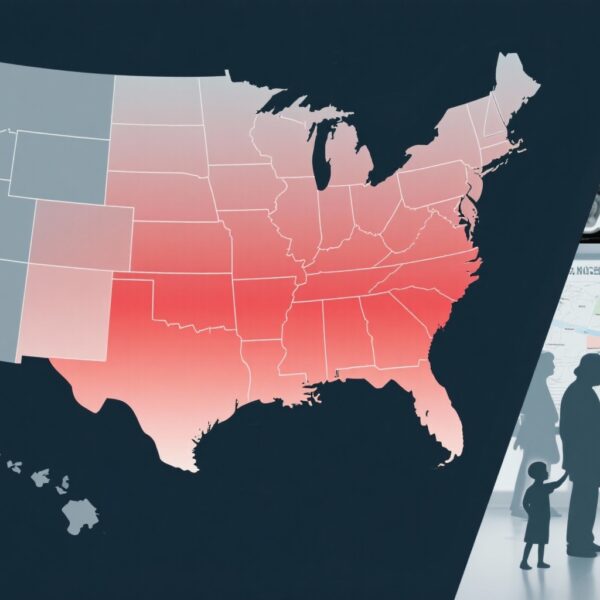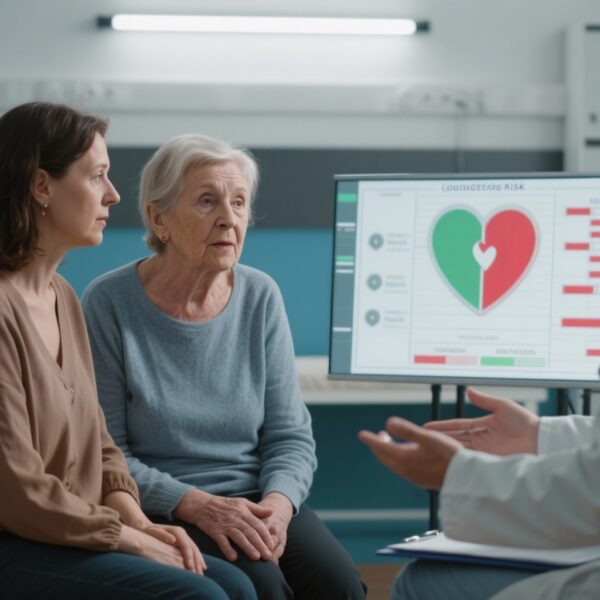Introduction
Heart failure affects millions worldwide and often leads to repeated hospitalizations, imposing significant burdens on patients and healthcare systems. Effective management after hospital discharge is critical to improve patient health, reduce readmissions, and enhance quality of life. Two approaches have gained attention to support patients in this vulnerable post-acute period: Transitions of Care Coordination (TOCC) and Mobile Integrated Health (MIH).
TOCC generally involves a nurse-led follow-up phone call shortly after discharge to ensure patients understand their care plan, manage medications, and receive timely support. MIH expands on this model by adding in-person home visits from community paramedics and telehealth consultations with emergency medicine physicians, aiming to provide more continuous, comprehensive support.
The Mighty-Heart randomized clinical trial was designed to evaluate whether adding MIH to standard TOCC provides superior benefits regarding patients’ health status and 30-day hospital readmission rates. This trial enrolled over 2,000 Medicare and Medicaid patients hospitalized with heart failure across New York City hospitals between 2021 and 2024, offering robust real-world insights into post-discharge care strategies.
Understanding the Study Design
Participants were randomly assigned to one of two groups: the TOCC group received a follow-up nurse phone call within 48 to 72 hours after hospital discharge, while the MIH group received the same call plus ongoing nurse coordination, community paramedic home visits, and telehealth sessions with emergency medicine doctors during the first 30 days post-discharge.
The trial measured two primary outcomes: patients’ health status at 30 days using the Kansas City Cardiomyopathy Questionnaire Overall Summary score—a patient-reported tool assessing heart failure symptoms and quality of life—and rates of all-cause hospital readmissions within 30 days. Heart failure-specific readmissions were also tracked as a secondary outcome.
Main Findings: What the Data Tell Us
Among 2,003 participants with a median age of 67 years and a slight female majority (52%), the study found no statistically significant difference in health status scores between the MIH and TOCC groups at 30 days. Specifically, the mean difference in the Kansas City Cardiomyopathy Questionnaire score was 1.83 points (95% confidence interval: -0.75 to 4.40), which did not reach statistical significance.
Similarly, the 30-day all-cause readmission rates were nearly identical: 20.3% in the MIH group versus 20.4% in the TOCC group. The odds ratio was 0.99 (95% CI: 0.83 to 1.19), showing no meaningful reduction in hospital readmissions attributable to the additional MIH interventions.
Interestingly, exploratory analyses suggested that younger patients might derive more health status benefit from MIH compared to older adults, reflecting a possible age-related interaction effect. This finding hints at a nuanced impact of MIH that warrants further investigation.
Clinical Implications and Real-World Applications
While the concept of mobile integrated health—bringing healthcare services directly to patients’ homes and integrating telehealth—appears promising, this large trial shows that simply layering MIH onto standard transition care calls does not improve short-term patient outcomes for heart failure broadly.
For clinicians and hospital systems, this underscores the importance of carefully evaluating resource-intensive care models before widespread implementation. Given the costs and coordination efforts involved in MIH, its routine use may not be justified over less complex TOCC approaches—at least for a general heart failure population.
Nevertheless, the potential benefit for younger patients seen in subgroup analysis suggests that a one-size-fits-all strategy may overlook key patient differences. Targeted application of MIH to carefully selected groups could be more effective than universal deployment.
Common Misconceptions About Post-Hospitalization Care
A frequent misunderstanding is that more intensive care models always translate into better outcomes. The Mighty-Heart trial challenges this by showing that additional interventions like home visits and telehealth, while well-intentioned, do not guarantee improved health or fewer readmissions for all patients.
Another misconception is that readmission rates can easily be reduced by transitional care programs alone. Heart failure is a complex, chronic condition influenced by various factors including comorbidities, social determinants, and patient adherence, making readmission reduction challenging.
Recommendations for Healthcare Providers
Healthcare providers should continue employing effective, evidence-based transition of care strategies such as timely nurse follow-ups and personalized patient education. Emphasizing clear communication, medication reconciliation, and symptom monitoring after discharge remains key.
For institutions considering expanding post-discharge programs, the Mighty-Heart findings suggest a need for targeted approaches that consider patient demographics and risk factors. Younger heart failure patients or those with specific care needs might benefit from augmented plans involving MIH elements.
In addition, integrating patient preferences and social support into care decisions may further optimize outcomes. Employing telehealth and community paramedics judiciously rather than ubiquitously may lead to better resource utilization.
Expert Insights and Future Directions
Dr. Rebecca Masterson Creber, lead investigator of the Mighty-Heart trial, highlights that “While MIH did not show broad benefits over standard transitions of care coordination, the age-related differences we observed suggest tailored interventions could matter.” Further studies are needed to clarify how to personalize post-discharge care effectively and economically.
Emerging research focusing on integrating digital health monitoring, remote patient management, and social determinants screening alongside traditional post-discharge support may open new frontiers in heart failure care.
Conclusion
The Mighty-Heart trial provides valuable, large-scale evidence that mobile integrated health services layered on standard nurse-led care coordination do not significantly enhance health status or reduce hospital readmissions within 30 days among patients discharged after heart failure hospitalization. However, preliminary findings indicating differential effects by age highlight the importance of personalized care strategies. For now, healthcare providers should continue using proven transition of care practices while awaiting further research to optimize innovative approaches like MIH.
Funding and Trial Registration
The Mighty-Heart study was funded by grants supporting health services research and conducted with multidisciplinary collaboration among New York City hospitals. The trial is registered on ClinicalTrials.gov under the identifier NCT04662541.
References
Masterson Creber R, Daniels B, Reading Turchioe M, et al. Mobile Integrated Health vs a Transitions of Care Coordinator for Patients Discharged After Heart Failure: The Mighty-Heart Randomized Clinical Trial. JAMA Intern Med. 2025 Nov 1;185(11):1341-1348. doi:10.1001/jamainternmed.2025.4483. PMID: 40952734; PMCID: PMC12439178.



